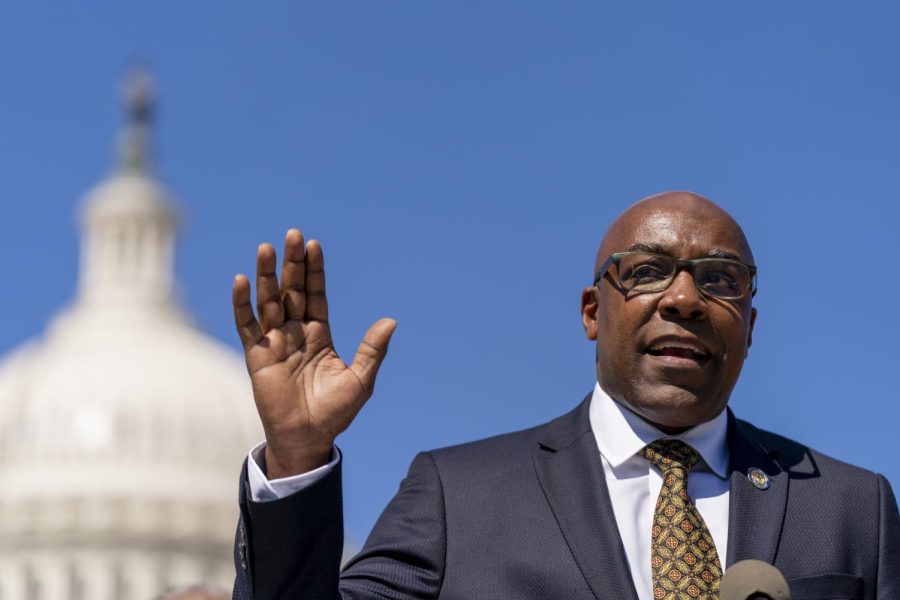The future of cash bail is uncertain
Has Illinois eliminated cash bail? The short answer: No.
AP Photo | Andrew Harnik, File
Illinois Attorney General Kwame Raoul speaks at a rally on Capitol Hill in Washington, Sept. 28, 2022. On Dec. 30, Raoul filed paperwork with the state Supreme Court to appeal a local judge’s ruling that eliminating cash bail for criminal defendants is unconstitutional. (AP Photo/Andrew Harnik, File)
January 17, 2023
The SAFE-T Act promised to eliminate cash bail, which proponents said would create more equality under the law. Now, its future is uncertain as the Illinois Supreme Court will decide its legality.
In late December, at least 58 counties, including the counties of DeKalb, Boone, Lee and Ogle, filed a lawsuit in response to the SAFE-T Act in the hopes of preserving cash bail, the system allowing defendants to be released from custody before trial after paying a fee, which the act would have dissolved on Jan. 1.
Now, the act’s future is uncertain as the attorney general attempts to appeal the lawsuit to the Illinois Supreme Court. The Supreme Court has put an indefinite hold on eliminating cash bail across the state in order to maintain consistency statewide until they make a final decision. For now, cash bail is still in place across Illinois.
The SAFE-T Act is a piece of legislation signed into law by Illinois Gov. J.B. Pritzker in early 2021. The legislation aimed to resolve concerns that had been documented regarding equity in criminal justice, most notably by abolishing the cash bail system across the state.
The lawsuit was heard by Kankakee County Circuit Court Judge Thomas W. Cunnington, who determined that the cash bail section of the SAFE-T Act was unconstitutional.
“A judge in December held that the provisions of the Pretrial Fairness Act that eliminate cash bail were unconstitutional under the Illinois Constitution because they violate its guarantees of the separations of powers,” said Evan Bernick, assistant professor of the NIU College of Law.
The separation of powers stated in the Illinois Constitution prevents the different branches of government from interfering with each other in ways that prevent them from using their powers.
“Legislative enactments undermining the ‘traditional and inherent’ powers of the judicial branch, particularly, those restricting judicial discretion, violate the Separation of Powers Clause,” according to Cunnington’s ruling.
State Attorney General Kwame Raoul filed an appeal with the Illinois Supreme Court in December as a response to Cunnington’s decision.
If the Illinois Supreme Court rules that the legislation is constitutional during oral arguments in March, the elimination of cash bail would proceed as originally planned across the state.
“We look forward to mounting a robust defense of the constitutionality of the law and ensuring that it goes into effect across the state,” Raoul said in a press release.
In order for the Illinois Supreme Court to find it constitutional, they will need to find proof that it does not infringe on the separation of powers.
Bernick said the government already finds that similar interactions between different branches of governance are legal.
“I think that what the state is going to be arguing going forward is that eliminating cash bail does restrict something that judges would otherwise be able to do,” Bernick said. “But it’s not meaningfully different from a lot of other things that constrain judicial discretion that legislators are uncontroversially allowed to do.”







